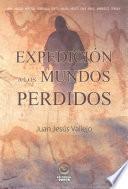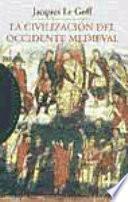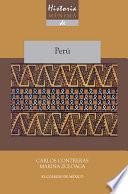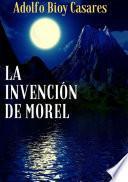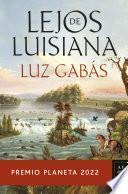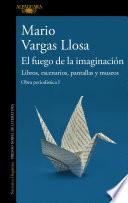The Thought History in Remote Antiquity Period and The Three Dynasties (Xia, Shang and Zhou Dynasty)
Sinopsis del Libro
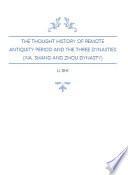
The book is the volume of “The Thought History in Remote Antiquity Period and The Three Dynasties (Xia, Shang and Zhou Dynasty) ” among a series of books of “Deep into China Histories”. The earliest known written records of the history of China date from as early as 1250 BC, from the Shang dynasty (c. 1600–1046 BC) and the Bamboo Annals (296 BC) describe a Xia dynasty (c. 2070–1600 BC) before the Shang, but no writing is known from the period The Shang ruled in the Yellow River valley, which is commonly held to be the cradle of Chinese civilization. However, Neolithic civilizations originated at various cultural centers along both the Yellow River and Yangtze River. These Yellow River and Yangtze civilizations arose millennia before the Shang. With thousands of years of continuous history, China is one of the world's oldest civilizations, and is regarded as one of the cradles of civilization.The Zhou dynasty (1046–256 BC) supplanted the Shang and introduced the concept of the Mandate of Heaven to justify their rule. The central Zhou government began to weaken due to external and internal pressures in the 8th century BC, and the country eventually splintered into smaller states during the Spring and Autumn period. These states became independent and warred with one another in the following Warring States period. Much of traditional Chinese culture, literature and philosophy first developed during those troubled times.In 221 BC Qin Shi Huang conquered the various warring states and created for himself the title of Huangdi or "emperor" of the Qin, marking the beginning of imperial China. However, the oppressive government fell soon after his death, and was supplanted by the longer-lived Han dynasty (206 BC – 220 AD). Successive dynasties developed bureaucratic systems that enabled the emperor to control vast territories directly. In the 21 centuries from 206 BC until AD 1912, routine administrative tasks were handled by a special elite of scholar-officials. Young men, well-versed in calligraphy, history, literature, and philosophy, were carefully selected through difficult government examinations. China's last dynasty was the Qing (1644–1912), which was replaced by the Republic of China in 1912, and in the mainland by the People's Republic of China in 1949.Chinese history has alternated between periods of political unity and peace, and periods of war and failed statehood – the most recent being the Chinese Civil War (1927–1949). China was occasionally dominated by steppe peoples, most of whom were eventually assimilated into the Han Chinese culture and population. Between eras of multiple kingdoms and warlordism, Chinese dynasties have ruled parts or all of China; in some eras control stretched as far as Xinjiang and Tibet, as at present. Traditional culture, and influences from other parts of Asia and the Western world (carried by waves of immigration, cultural assimilation, expansion, and foreign contact), form the basis of the modern culture of China.
Ficha del Libro
Autor:
- Li Shi
Categoría:
Formatos Disponibles:
MOBI, EPUB, PDF
¿Cómo descargar el libro?
Te indicamos a continuación diferentes opciones para descargar el libro.
Valoración
4.7
79 Valoraciones Totales
